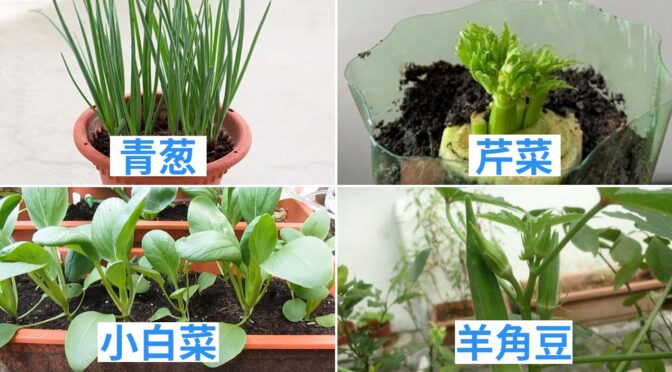突如其来的COVID-19疫情打乱了每个人的生活节奏。我们外派教师也关心着国内的疫情。每天早晨醒来,第一件事就是查看疫情实时数据、抗疫新闻和家乡的疫情情况。在看到国内疫情得到控制后,我们悬着的心终于放了下来。

然而,全球疫情的形势却越来越不容乐观,确诊人数越来越多。在我任教的柬埔寨, 1月27日出现了首例确诊病例。柬埔寨各大媒体持续追踪病例情况,卫生部也呼吁民众不要过度恐慌,并做好自身防护。
2月14日,柬埔寨各华校陆续开学。受疫情影响,回校的孩子有所减少。因全柬上下自首例治愈以来再无新增,我所在的马德望联华学校就以预防为主。
学校第一时间购置了洗手池和肥皂供师生使用,在开学的例会上强调教师必须佩戴口罩上课,尽量不要和学生近距离接触,我也告诉孩子们要佩戴口罩、勤洗手、少聚集。
开学近一个月后,疫情还是在柬埔寨暴发了。
3月7日,暹粒一名本地人确诊,暹粒市学校关闭;3月10日,磅湛省两名英国女游客确诊;3月15日上午,金边4例外籍游客确诊,下午又新增4例。3月16日上午,柬埔寨总理洪森发布紧急命令,全柬公私立学校停课,禁止所有宗教集会,取消柬新年各项活动。
在紧急命令发布的当天,我和另一名外派教师到附近的超市购买了一个月的生活物资,为居家生活做准备。为了尽量少出门、不出门,我们选购的是红薯、芋头、萝卜、南瓜、洋葱等保质期较长且易于存放的蔬菜。这段时间里,能吃上有叶子的蔬菜成为了我最大的愿望。
学校停课期间,柬埔寨的确诊病例越来越多。周边的几个国家也相继封国。家里人非常担心我,希望我能尽早回国,但我决定和其他外派教师一道坚守岗位。课虽停了,但我们可以利用这段时间备课、写教案,整理平时的教学笔记,研究教学方法,写外派心得,练习书法……坚守的每一天都有意义。
柬埔寨的网络信号普遍不好,上网课比较困难。我也只能通过微信提醒学生注意防护,给学生分享各种国内的抗疫故事,让为他们建立战胜疫情的信心,减少他们对疫情的恐惧。
疫情面前没有国界,任何一个国家都难以独善其身。在疫情依然严峻的情况下,作为远赴海外的外派教师,我们更要坚守岗位,在困难面前守住初心,传播中华文化,讲好中国故事。我坚信,在中柬人民的共同努力下,我们必会迎来一个灿烂美好的明天。
English:
The sudden covid-19 epidemic disrupted everyone’s pace of life. Our expatriate teachers are also concerned about the domestic epidemic. When you wake up every morning, the first thing is to check the real-time epidemic data, anti epidemic news and the epidemic situation in your hometown. After seeing the domestic epidemic under control, our suspense was finally relieved.
However, the global epidemic situation is more and more not optimistic, and more and more people are diagnosed. In Cambodia, where I teach, the first confirmed case occurred on January 27. Cambodia’s major media continued to track the cases, and the Ministry of health also called on the people not to panic excessively and to protect themselves.
On February 14, Chinese schools in Cambodia began to open one after another. Affected by the epidemic, the number of children returning to school has decreased. Since there has been no new increase in Cambodia since the first case was cured, the Battambang Lianhua school where I work focuses on prevention.
The school bought a wash basin and soap for teachers and students at the first time. At the regular meeting, it stressed that teachers must wear masks in class and try not to have close contact with students. I also told children to wear masks, wash hands frequently and gather less.
Nearly a month after the start of school, the epidemic broke out in Cambodia.
On March 7, a local in Siem Reap was diagnosed and the school in Siem Reap was closed; On March 10, two British female tourists in kampong Cham province were diagnosed; On the morning of March 15, 4 cases of foreign tourists in Phnom Penh were diagnosed, and another 4 cases were added in the afternoon. On the morning of March 16, Cambodian Prime Minister Hun Sen issued an emergency order to suspend public and private schools in Cambodia, prohibit all religious gatherings and cancel various activities in the Cambodian new year.
On the day of the emergency order, another expatriate teacher and I went to a nearby supermarket to buy living materials for one month to prepare for home life. In order to minimize going out and not going out, we choose vegetables with long shelf life and easy storage, such as sweet potato, taro, radish, pumpkin and onion. During this time, it has become my biggest wish to eat leafy vegetables.
The number of confirmed cases in Cambodia increased during school closures. Several neighboring countries have also been closed. My family was very worried about me and hoped I could return home as soon as possible, but I decided to stick to my post together with other expatriate teachers. Although the class has stopped, we can use this time to prepare lessons, write lesson plans, sort out usual teaching notes, study teaching methods, write expatriate experience, practice calligraphy… Every day we stick to is meaningful.
The network signal in Cambodia is generally poor, and it is difficult to take online classes. I can only remind students to pay attention to protection through wechat and share various domestic anti epidemic stories with students, so as to build their confidence in overcoming the epidemic and reduce their fear of the epidemic.
There are no borders in front of the epidemic, and it is difficult for any country to be alone. When the epidemic is still severe, as overseas teachers, we should stick to our posts, keep our original intention in the face of difficulties, spread Chinese culture and tell Chinese stories well. I firmly believe that with the joint efforts of the Chinese and Cambodian people, we will usher in a brilliant and beautiful tomorrow.
(美国华文网 圣地亚哥华文网编发 Fei Lu, Ranxin Shi USChinesePress.com SanDiegoChinesePress.com)
